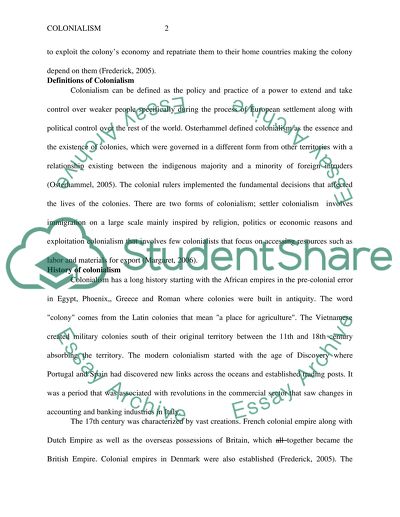Cite this document
(“The European Colonialism in 16th century to mid 20th Research Paper”, n.d.)
The European Colonialism in 16th century to mid 20th Research Paper. Retrieved from https://studentshare.org/history/1691028-colonialism
The European Colonialism in 16th century to mid 20th Research Paper. Retrieved from https://studentshare.org/history/1691028-colonialism
(The European Colonialism in 16th Century to Mid 20th Research Paper)
The European Colonialism in 16th Century to Mid 20th Research Paper. https://studentshare.org/history/1691028-colonialism.
The European Colonialism in 16th Century to Mid 20th Research Paper. https://studentshare.org/history/1691028-colonialism.
“The European Colonialism in 16th Century to Mid 20th Research Paper”, n.d. https://studentshare.org/history/1691028-colonialism.


